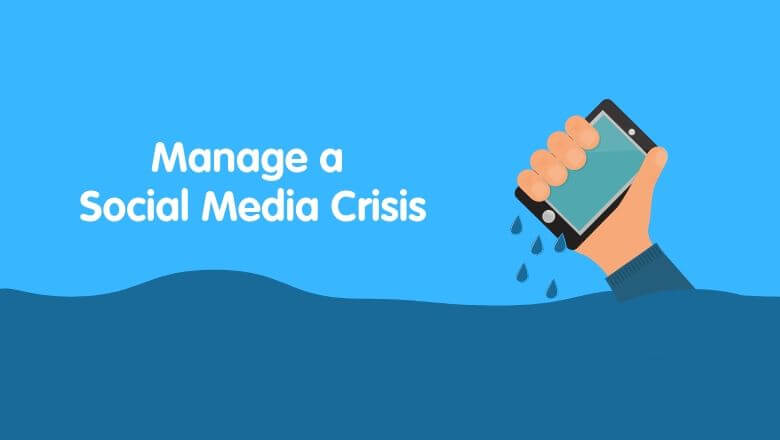In today’s digital age, social media has become an indispensable part of our lives. From individuals to businesses, everyone relies on social media platforms to communicate, connect, and engage with their audience. While social media offers tremendous opportunities, it also comes with risks. A single negative post or comment can quickly escalate into a full-blown crisis, damaging a brand’s reputation and causing significant financial losses. In this article, we will explore the concept of social media crisis management and provide effective strategies for navigating these turbulent waters.
Understanding Social Media Crisis Management

1. What is a Social Media Crisis?
A social media crisis refers to a situation where negative content about a brand spreads rapidly across social media platforms, potentially causing severe harm to the brand’s image and reputation. This content can take the form of negative reviews, offensive comments, or even viral misinformation. The speed and reach of social media make it crucial for businesses to address such crises promptly and effectively.
2. The Impact of Social Media on Brands
Social media has given consumers a powerful voice. A single disgruntled customer can share their negative experience with thousands of people, leading to a domino effect of negative publicity. Conversely, social media also presents an opportunity for brands to showcase their responsiveness, empathy, and commitment to customer satisfaction.
Identifying Potential Crisis Triggers
1. Monitoring Online Conversations
Regularly monitoring social media platforms is vital for identifying potential crisis triggers. By actively listening to customer feedback, brands can detect emerging issues and address them before they escalate. Social media listening tools can help businesses track mentions, hashtags, and keywords related to their brand.
2. Analyzing Social Media Sentiment
Understanding the sentiment behind social media mentions is equally crucial. By analyzing whether the overall sentiment is positive, negative, or neutral, brands can gauge the public’s perception and identify areas that require immediate attention.
Establishing a Crisis Management Team
1. Roles and Responsibilities
Creating a crisis management team is essential to handle social media crises effectively. This team should consist of representatives from various departments, including marketing, public relations, customer service, and legal. Each member should have well-defined roles and responsibilities to ensure a coordinated response.
2. Creating an Action Plan
Having a well-thought-out action plan in place is key to managing social media crises efficiently. The plan should outline the steps to be taken during different crisis scenarios, from minor complaints to major reputation-threatening incidents.
Responding to a Social Media Crisis
1. The Golden Hour Principle
The first hour after a crisis emerges, often referred to as the golden hour, is critical for a response. Prompt action can prevent the situation from escalating further. Acknowledging the issue and informing the public that the brand is addressing it demonstrates transparency and concern.
2. Crafting the Right Response
The response to a social media crisis should be well-crafted, empathetic, and informative. It should address the concerns of the affected parties, explain the steps being taken to resolve the issue and provide reassurance that the situation is being handled seriously.
Transparency and Honesty: Building Trust
1. Acknowledging Mistakes
When a brand makes a mistake, it is essential to acknowledge it openly and take responsibility. Attempting to cover up or ignore the issue can exacerbate the crisis and erode trust further. Transparency and honesty go a long way in building credibility.
2. Avoiding Deceptive Practices
Misleading or deceptive responses can be harmful in the long run. Brands should avoid exaggerating facts or making false promises to appease the public. Maintaining credibility and trustworthiness is crucial for sustainable crisis management.
Turning Crisis into Opportunity
1. Learning from the Experience
Every crisis offers valuable lessons. Brands should conduct post-crisis reviews to identify areas of improvement and implement changes accordingly. By learning from the experience, businesses can be better prepared for future challenges.
2. Demonstrating Commitment to Change
Following a crisis, actions speak louder than words. Brands must demonstrate their commitment to change through concrete steps, such as enhancing customer service, updating policies, or implementing new safety measures.
Social Media Policies and Guidelines
1. Empowering Employees
Employees play a vital role in maintaining a positive brand image on social media. Providing clear social media policies and guidelines empowers employees to represent the brand responsibly and avoid inadvertently causing a crisis.
2. Encouraging Responsible Usage
Educating employees about the potential risks of social media and encouraging responsible usage can mitigate the chances of a crisis originating from within the organization.
Learning from Case Studies
1. Successful Crisis Management Examples
Studying successful crisis management examples from other brands can provide valuable insights into effective strategies and tactics.
2. Lessons from Notable Failures
Analyzing the missteps of brands that have faced severe social media crises can help others avoid similar pitfalls and respond more effectively if a crisis occurs.
Conclusion
In the fast-paced world of social media, crises can emerge unexpectedly and wreak havoc on a brand’s reputation. However, by proactively monitoring, planning, and responding with transparency and empathy, businesses can navigate these turbulent waters successfully. Social media crisis management is not just about damage control; it’s an opportunity for brands to showcase their commitment to their customers and their ability to turn challenges into growth opportunities.
Are you ready to safeguard your brand’s reputation in the digital realm? Request a demo from AIM Technologies today and discover how our cutting-edge social media crisis management tools can help you stay ahead of potential threats while strengthening your brand’s online presence.
FAQs
How can businesses prepare for a social media crisis?
- Businesses can prepare for a social media crisis by creating a crisis management team, developing an action plan, and monitoring social media conversations regularly.
What is the importance of transparency during a social media crisis?
- Transparency is crucial during a social media crisis as it builds trust with the public and shows a commitment to addressing the issue openly.
Can a social media crisis be turned into an opportunity?
- Yes, a social media crisis can be turned into an opportunity by learning from the experience and demonstrating a commitment to positive change.
How can social media policies empower employees?
- Social media policies can empower employees by providing clear guidelines on representing the brand responsibly and avoiding potential crisis triggers.


